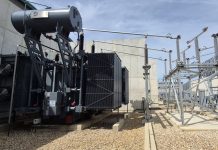 As the UK accelerates towards its 2030 clean power target (CP 2030), the energy sector faces a pivotal moment. The Review of Electricity Market Arrangements (REMA) decision to reject zonal pricing in favour of a reformed national pricing model offered a welcome dose of clarity, but it didn’t settle the real debate. How do we balance investment signals, pricing fairness, regional needs and the overall cost of the transition? These challenges demand fresh thinking writes Kate Mulvany, Principal Consultant at Cornwall Insight
As the UK accelerates towards its 2030 clean power target (CP 2030), the energy sector faces a pivotal moment. The Review of Electricity Market Arrangements (REMA) decision to reject zonal pricing in favour of a reformed national pricing model offered a welcome dose of clarity, but it didn’t settle the real debate. How do we balance investment signals, pricing fairness, regional needs and the overall cost of the transition? These challenges demand fresh thinking writes Kate Mulvany, Principal Consultant at Cornwall Insight
Trade-offs are inevitable. Infrastructure investment is ramping up to modernise a grid that, in parts, is over 60 years old. By 2050, we’ll likely need three times today’s network capacity to meet the increasing electricity demand across transport, industry and in homes. These upgrades are essential, but they come at a cost, frustrating consumers who were promised falling bills.
The delivery of the UK’s ambitious decarbonisation goals requires not only targeted reform and digitalisation, but also the trust of the public. The public need to believe that any trade-offs in costs, speed or impact are fully understood by policy makers. Proposals for a social tariff and changes to standing charges reflect ongoing concerns about affordability and fairness, that if left unaddressed risks eroding support for the transition.
Meanwhile change is already happening. Battery electric vehicles made up a fifth of cars sold in the UK to August, heat pumps are becoming more common in new builds and retrofitted, and other transition technologies are gaining traction. Yet the future of market design that underpins these choices remains uncertain.
Energy is complex, but understanding the principles behind the system design shouldn’t be. At Cornwall Insight we work across industries to help businesses navigate this complexity with data, insight and strategy.
That’s why CI Live, Cornwall Insight’s annual conference, is more important than ever. This year’s event will bring together leading voices from across the sector, including Centrica CEO Chris O’Shea, Shadow Secretary of State for DESNZ Claire Coutinho, and representatives from National Grid, NESO, Octopus Energy, Citizens Advice and more, to explore the implications of REMA and other reforms.
CI Live will tackle the sector’s pressing issues, including:
- Implementation of the reformed national pricing model
- Reform of Transmission Network Use of System charges
- Changes to Contract for Difference and Capacity Market schemes
- Growth of Corporate PPAs
- The future of household energy bills
Join us to be part of the conversation shaping the future of energy, secure your place today and get 10% off tickets with code: THEENERGYST10 – Register here



